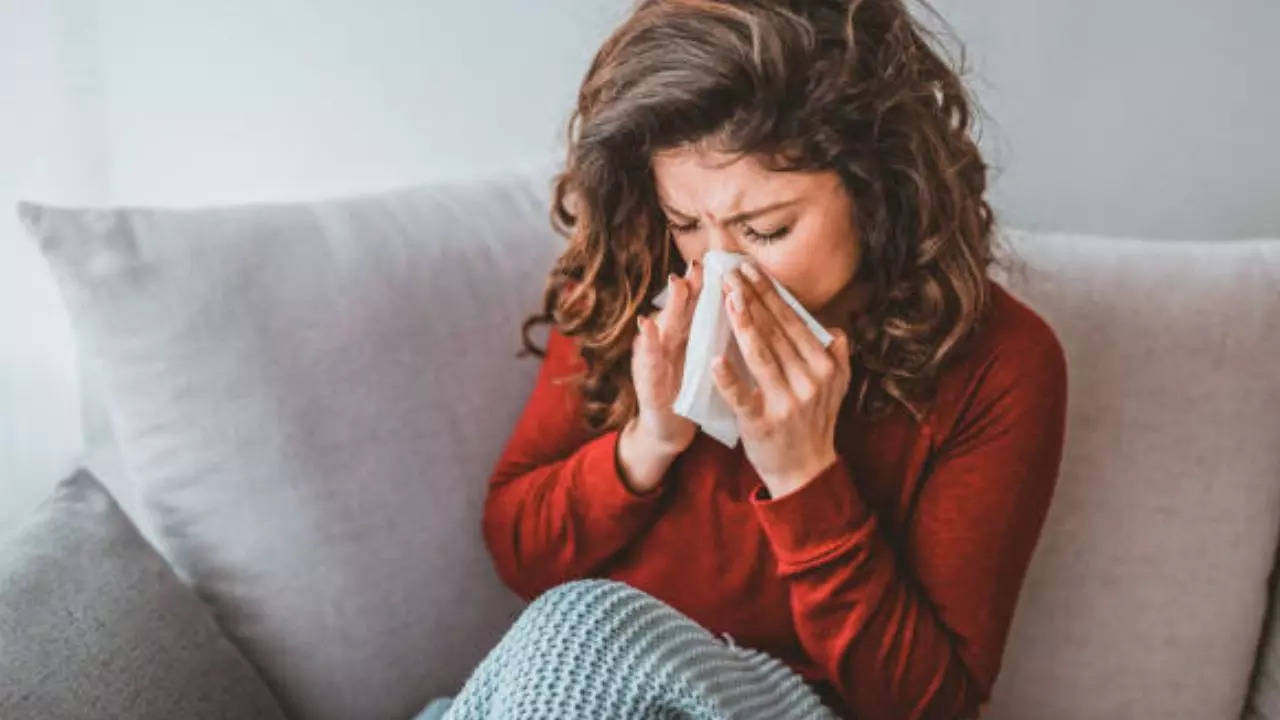Contents
-
news
-
Health
Norovirus, COVID-19, flu, RSV—how to avoid getting sick this season
In winter, diseases like flu, COVID-19, norovirus and colds increase due to staying indoors and dry air. Recognizing symptoms, practicing hand hygiene, cleaning surfaces, avoiding touching the face, wearing a mask, and vaccination can help prevent infection.

Norovirus, COVID-19, flu, RSV—how to avoid getting sick this season (Image credit: iStock)
Winter brings a rise in illnesses like the flu, COVID-19, norovirus, and the common cold. These health problems, although present year-round, become more prevalent in the colder months due to spending more time indoors and the effects of cold, dry air on our immune defenses. Therefore, it is essential to understand these diseases and how they spread, which can help you stay safe. Here we’ve listed what you need to know to cope with the weather and reduce the risk of falling ill.
Recognizing Common Winter Illnesses
Different viruses bring different symptoms. Knowing the differences can help you identify what you’re dealing with:
– Norovirus: A foodborne illness that is spread by water, contaminated surfaces, or infected food. Symptoms include vomiting, diarrhea, nausea, and abdominal pain lasting 1-3 days.
– Common cold: Common cold caused by various viruses causes symptoms like runny nose, congestion, cough, sneezing, sore throat, mild headache, body ache or mild fever. These symptoms usually resolve in less than a week.
– Fever: Influenza viruses cause fever, chills, sore throat, cough, runny nose, body aches, headache and fatigue. Symptoms appear quickly and can last from a few days to two weeks.
– COVID-19: The virus may cause fever, chills, cough, shortness of breath, congestion, sore throat, fatigue, body aches, headache, loss of taste or smell, nausea, or vomiting. Symptoms may persist for several days.
– RSV (Respiratory Syncytial Virus): The virus affects both children and adults, causing runny nose, congestion, cough, sneezing, wheezing, fever and loss of appetite. Symptoms usually last for 1-2 weeks.
Preventive measures to stay healthy
Taking some proactive steps can reduce your chances of getting sick:
1. Wash your hands frequently
Good hand hygiene is important to prevent the spread of most viruses, including norovirus, colds, flu, and COVID-19. Use soap and scrub for at least 20 seconds, especially after using the toilet or handling food. If soap is not available, use hand sanitizer containing at least 60% alcohol, but note that this is less effective against norovirus.
2. Clean high-touch surfaces
Viruses can be on surfaces like door handles, light switches, and cell phones. Disinfect these areas regularly using household cleaners with soap or detergent, followed by sanitizer. For norovirus contamination, use a bleach solution or EPA-recommended disinfectant.
3. Avoid touching your face
If your hands are contaminated the virus can enter your body through your eyes, nose or mouth. Keeping your hands away from your face can prevent infection.
4. Wear a mask in crowded places
Respiratory viruses spread through droplets produced by coughing, sneezing or talking. Wearing an N95 or medical-grade mask in crowded or poorly ventilated areas can reduce the risk.
5. Get vaccinated
Vaccines are available for some winter diseases:
-COVID-19: Updated vaccines protect against new variants.
– Flu: Annual flu shots are recommended for everyone ages 6 months and older.
– RSV: Available for people 60 years of age and older or those who are pregnant.
Unfortunately, there are no vaccines for norovirus or the common cold.
boost your immune system
To strengthen your body’s defenses against infections:
– Get enough rest: Sleep helps your immune system function better.
– Stay hydrated: Drink plenty of water to avoid dehydration.
– Manage stress: Chronic stress can weaken your immune response.
what to do if you get sick
If you get sick, take these steps to recover and prevent spreading the illness to others:
1. Testing for COVID-19 or flu
Early testing can determine appropriate treatment, such as Paxlovid for COVID-19 or Tamiflu for influenza.
2. Stay at home
Avoid exposing your illness to others. Rest, drink fluids, and use over-the-counter medications such as pain relievers to manage symptoms. A humidifier can also provide relief from congestion.
3. Hydrate for norovirus
Rehydration is important for norovirus. Drink plenty of water or use oral rehydration solutions. If you experience severe dehydration, such as dry mouth, less urination, or dizziness, seek medical attention.
Get the latest news live on Times Now with breaking news and top headlines from health and around the world.


